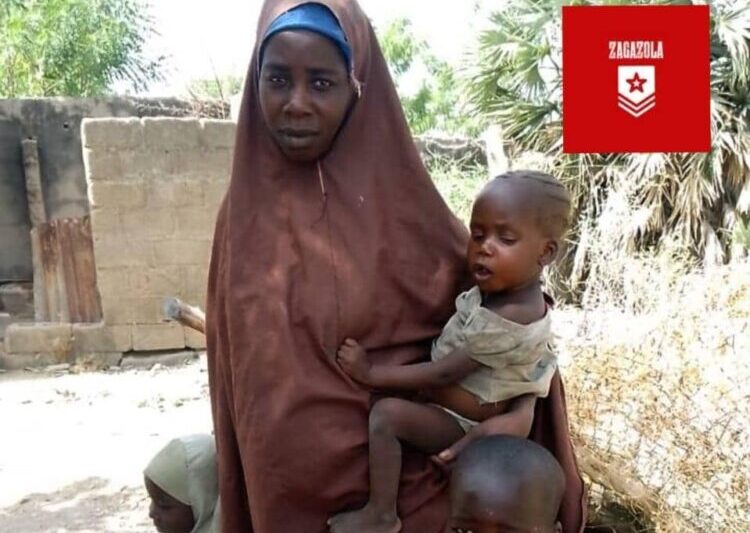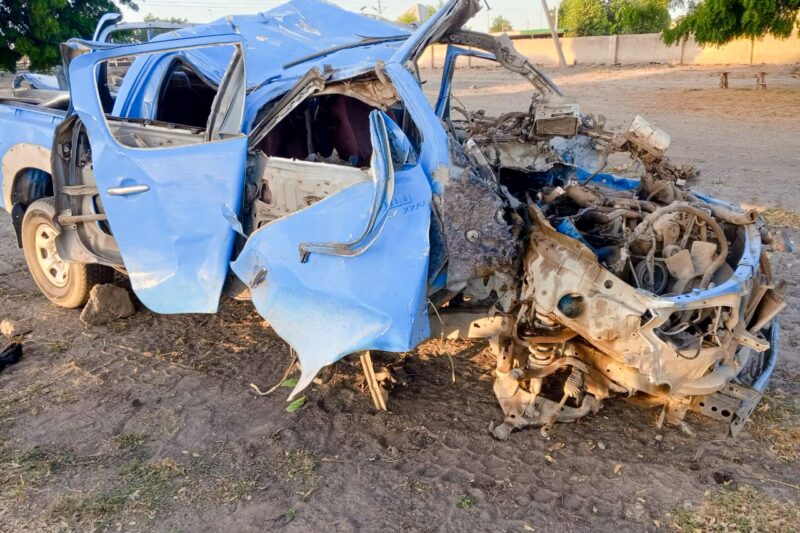After starving for months, it took a visit by the United Nations Secretary-General, António Guterres, in May to finally get food – distributed by the Borno State government on Thursday, June 16 – to the residents of Gubio internally displaced persons’ camp.
Guterres met some of the IDPs when he visited the camp on May 3. He acknowledged then that there was a grave need for humanitarian aid for the residents, whose living conditions he described as critical.
About 30,000 displaced persons from nine local government areas of Borno State live in the camp which is about 16km from Maiduguri. Some residents had already died from starvation. Others were so hungry that they would do almost anything for food, including women and girls selling sex to get something to eat.
But just more than a month since Guterres’ visit, the State Emergency Management Agency (SEMA) distributed food items worth millions of naira on June 16. The food included 400 bags of maize, 100 bags of beans, cooking oil and 30 cartons of Maggi, a popular seasoning cube used to add flavour to meat, fish, vegetables, soups and stews.
Yabawa Kolo, the director-general of SEMA, said the relief items would greatly support displaced families in the camp. She said the food was distributed mainly to the most vulnerable groups, including child-headed and single women-headed households, the elderly, sick and people with disabilities.
But not all the IDPs in the camp were happy about the amount of food supplied, saying it was grossly insufficient. They said this was the first time in nearly a year that they had been given food aid and claimed that some people in the camp had died of hunger.
Officials said it was about six months since the camp residents had received food relief.
An IDP, who asked to remain anonymous, said: “I’m a displaced person originally from the Gamboru Ngala Local Government. I have lived in this camp for almost eight years now, after we were forced by Boko Haram [Jamā’at Ahl as-Sunnah lid-Da’way Wa’l-Jihād (JAS)] insurgents to flee our home town. Every day in this camp, we face many challenges, ranging from issues of healthcare service, water scarcity and a desperate shortage of food items, among others.
“However, two days ago, the Borno State government provided and distributed some food items. But, honestly, it’s not sufficient. They shared only one plate of maize for each household. Tell me how can one plate of maize be sufficient? I have 10 children. Imagine it: How can I feed 10 children with only one plate of maize? I believe that even my bird could eat up this one plate of maize by himself, let alone feeding my family with it. It’s better not to receive this kind of food if that is all they are going to give us.”
He said the camp residents were given about 400 bags of maize, some cooking oil and beans, among others.
“That’s all they gave us. How can anyone say 400 bags is enough for more than 30,000 people?
“Before, we used to get humanitarian aid, such as food and essential items, from non-governmental organisations (NGOs). But, unfortunately, a year ago the government banned the international and local NGOs from providing humanitarian aid. After they left we didn’t receive any humanitarian aid until two days ago.”
He said he was pleading with the government to provide camp residents with adequate food, as well as non-food essentials at least until it allowed the IDPs to return to their home towns.
“If they will not allow us to go back to our ancestral homes then it’s imperative for the state government to take a good care of us. We cannot continue to live in this camp without humanitarian assistance or support from the NGOs and the government.”
Fatima Aliye said: “The challenges that confront us in this camp are too many to mention. But the biggest one is starvation; we do not have enough food to sustain us. Even though, a few days ago, the Borno State government brought some food items, such as maize, beans, Maggi and cooking oil, the amount they brought us is nowhere near enough. There is no way that we will be able to have three square meals a day with what they brought. It’s ridiculous.”
She said the government should take into consideration the challenges of the camp’s residents, such as water scarcity, inadequate food supply, as well as inadequate healthcare service delivery, among others.
“We need more humanitarian assistance from the state government, so that we can improve the lives of our families. I hope the government will address our plight.”
Babagana Abatcha said: “I’m a displaced person originally from the Gamboru Ngala Local Government. I have been living in this camp for almost four years now. Thank God, at last we received some food items from the government. And, although we really appreciate the gesture, it is definitely nowhere near enough for the population of this camp. We need more. The government must either allow the NGOs to assist us or it must provide adequate food and other essentials. If it won’t do that, then it must allow us to return to our ancestral homes, which would be better for all of us.”
SHETTIMA LAWAN MONGUNO








